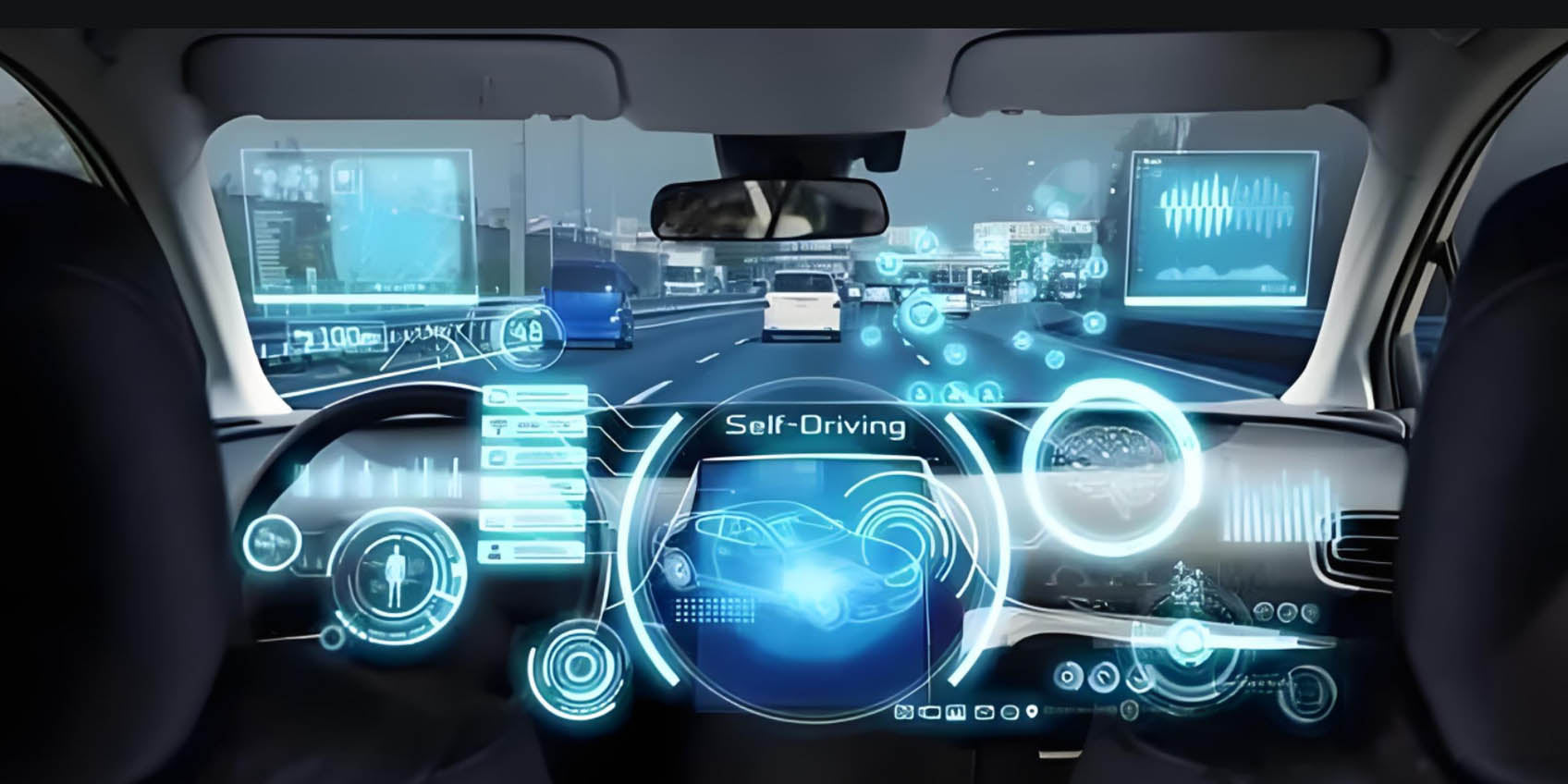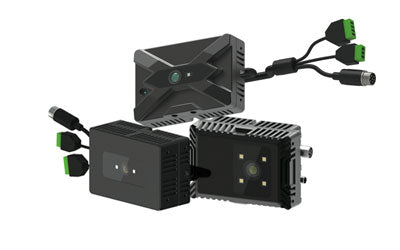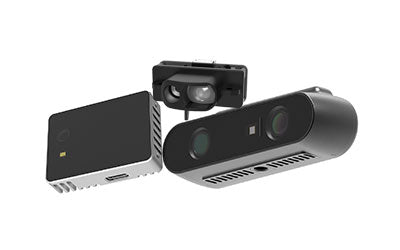TOF-Technologie und die Zukunft des autonomen Fahrens auf der Autobahn

Die zukünftige Entwicklung autonomer Fahrzeuge und die Schlüsselrolle der TOF-Technologie im Autobahnbereich
Die Technologie für autonome Fahrzeuge entwickelt sich rasant weiter und steuert auf eine vollautomatisierte Zukunft zu. Trotz dieser Fortschritte bleibt die Sicherheit ein entscheidender Aspekt. Die Time-of-Flight-Technologie (TOF) spielt eine unverzichtbare Rolle bei der Verbesserung der Sicherheit und Funktionalität autonomer Fahrsysteme.
Dieser Artikel untersucht die zukünftige Entwicklung autonomer Fahrzeuge und untersucht, wie die TOF-Technologie die Zuverlässigkeit und Sicherheit autonomer Fahrsysteme, insbesondere auf Autobahnen, verbessert.
Zukünftige Richtungen für autonome Fahrzeuge
-
Verbesserte Wahrnehmungsfähigkeiten : Zukünftige autonome Fahrzeuge werden fortschrittliche Wahrnehmungstechnologien wie hochauflösende 3D-Kameras , Radar und LiDAR integrieren. Verbesserte Wahrnehmungsfähigkeiten ermöglichen es Fahrzeugen, ihre Umgebung besser zu verstehen und präzisere Entscheidungen zu treffen.
-
Echtzeit-Datenverarbeitung : Dank der Weiterentwicklung der Rechenleistung können autonome Systeme große Datenmengen in Echtzeit verarbeiten. Diese Fähigkeit ermöglicht schnelle und präzise Reaktionen in komplexen Umgebungen und verbessert so die allgemeine Sicherheit und das Fahrerlebnis.
-
Hoher Automatisierungsgrad : Von Fahrerassistenzsystemen (ADAS) bis hin zum vollautonomen Fahren – die Entwicklung autonomer Technologien wird sich in Richtung höherer Automatisierungsgrade bewegen. Zukünftige autonome Fahrzeuge werden den gesamten Straßenverkehr abdecken – von der Autobahn bis zum Stadtverkehr.
-
Intelligente Entscheidungssysteme : Zukünftige autonome Systeme werden Technologien der künstlichen Intelligenz (KI) und des maschinellen Lernens (ML) kombinieren, um die Entscheidungsfindung zu verbessern. Durch kontinuierliches Lernen und Optimierung kann das System komplexe Fahrsituationen besser vorhersagen und darauf reagieren.
Die Schlüsselrolle der TOF-Technologie beim autonomen Fahren
-
Präzise 3D-Tiefenwahrnehmung : Die TOF-Technologie misst die Zeit, die Licht von der Quelle zum Objekt und zurück benötigt, und liefert präzise 3D-Tiefendaten . Diese hochpräzise Tiefenwahrnehmung ist entscheidend für autonome Fahrzeuge, um Hindernisse zu erkennen, Fahrspuren einzuschätzen und vorausliegende Bedingungen vorherzusagen. Sie kann sowohl Personen als auch Objekte präzise erkennen und zählen und gewährleistet so ein umfassendes Verständnis der Umgebung.
-
Starke Anpassungsfähigkeit bei schlechten Lichtverhältnissen : Im Gegensatz zu herkömmlichen RGB-Kameras liefern TOF-Kameras auch bei schlechten Lichtverhältnissen stabile Tiefendaten. Dadurch behalten autonome Fahrzeuge auch nachts oder in schwach beleuchteten Umgebungen eine gute Wahrnehmung, was die Sicherheit erhöht.
-
Effiziente Echtzeit-Datenerfassung : Die TOF-Technologie unterstützt die Hochgeschwindigkeitsdatenerfassung und ermöglicht autonomen Systemen, Tiefeninformationen in Echtzeit zu erfassen. Diese schnelle Reaktionsfähigkeit ist entscheidend für die Entscheidungsfindung bei Hochgeschwindigkeitsfahrten und komplexen Verkehrssituationen.
-
Präzise Messung über große Entfernungen : TOF-Kameras können Entfernungen über größere Entfernungen messen, was besonders beim Fahren auf Autobahnen wichtig ist. Auf Autobahnen müssen Fahrzeuge entfernte Hindernisse oder andere Verkehrsteilnehmer schnell erkennen, um rechtzeitig Entscheidungen treffen zu können. Die TOF-Technologie liefert hochpräzise Daten über große Entfernungen und erhöht so die Sicherheit bei Hochgeschwindigkeitsfahrten.
-
Umfassende Anwendung in verschiedenen Szenarien : Die TOF-Technologie ist nicht nur auf Autobahnen anwendbar, sondern spielt auch in städtischen Straßen, Tunneln und Brücken eine Rolle. Ob Spurwechsel, Überholen, Hindernisvermeidung auf Autobahnen oder Fußgängererkennung im städtischen Umfeld – die TOF-Technologie bietet zuverlässige Unterstützung.
TOF-Technologie in Autobahnanwendungen
-
Verbesserte Sicherheit auf Autobahnen : Auf Autobahnen fahren Fahrzeuge mit hoher Geschwindigkeit, daher ist die rechtzeitige Erkennung der Straßenverhältnisse entscheidend. Die TOF-Technologie liefert hochauflösende Tiefeninformationen und hilft Fahrzeugen, potenzielle Hindernisse oder Gefahrenquellen schon aus der Ferne zu erkennen. Diese Fähigkeit ist entscheidend für die Erkennung verlorener Gegenstände oder Hindernisse und gewährleistet so die Sicherheit auf Autobahnen.
-
Automatische Notbremsung : Die hohe Präzision und die Fernmessfähigkeit der TOF-Technologie zeichnen automatische Notbremssysteme aus. Das System kann mithilfe von TOF-Daten potenzielle Kollisionsgefahren frühzeitig erkennen und Bremsmaßnahmen einleiten, um Unfälle effektiv zu verhindern. Diese Funktion unterstützt Kollisionsvermeidungssysteme .
-
Automatische Notlenkung : In Notsituationen auf der Autobahn, in denen ein sofortiges Bremsen nicht möglich ist, liefert die TOF-Technologie hochauflösende Daten über große Entfernungen, die automatischen Notlenksystemen helfen, drohende Gefahren zu erkennen und Ausweichmanöver sicher durchzuführen.
-
Sichere Durchfahrt durch Tunnel und Brücken : Autobahnen führen oft durch Tunnel und Brücken mit schnell wechselnden Lichtverhältnissen. Die TOF-Technologie überwindet die Einschränkungen herkömmlicher Kameras, indem sie auch in diesen Umgebungen zuverlässige Tiefeninformationen liefert. Die hochauflösenden Punktwolkendaten helfen Fahrzeugen, Tunnel und Brücken sicher zu befahren, ohne unnötiges Bremsen oder scharfe Kurven.
Abschluss
Die Zukunft autonomer Fahrzeuge birgt enormes Potenzial, und die TOF-Technologie wird dabei eine zentrale Rolle spielen. Durch präzise 3D-Tiefenwahrnehmung , hervorragende Anpassungsfähigkeit an schlechte Lichtverhältnisse und effiziente Echtzeit-Datenerfassung wird die TOF-Technologie die Sicherheit und Zuverlässigkeit autonomer Fahrsysteme deutlich verbessern.
Insbesondere im Autobahnverkehr tragen die Vorteile der TOF-Technologie zu einem sichereren und intelligenteren Verkehrssystem der Zukunft bei. Mit fortschreitender Technologieentwicklung wird TOF Innovationen im autonomen Fahren vorantreiben und so zu einer sichereren und intelligenteren Mobilität der Zukunft beitragen.
Passende Produkte: CS20 , CS30 , CS20-P , CS40 , CS40p
Unser professionelles technisches Team, spezialisiert auf 3D-Kamera-Entfernungsmessung, steht Ihnen jederzeit gerne zur Verfügung. Egal, ob Sie nach dem Kauf Probleme mit Ihrer TOF-Kamera haben oder Fragen zur TOF-Technologie haben, kontaktieren Sie uns jederzeit. Wir legen Wert auf hochwertigen technischen Kundendienst und ein optimales Benutzererlebnis, damit Sie unsere Produkte unbesorgt kaufen und nutzen können.
-
Veröffentlicht in
Tof sensor





